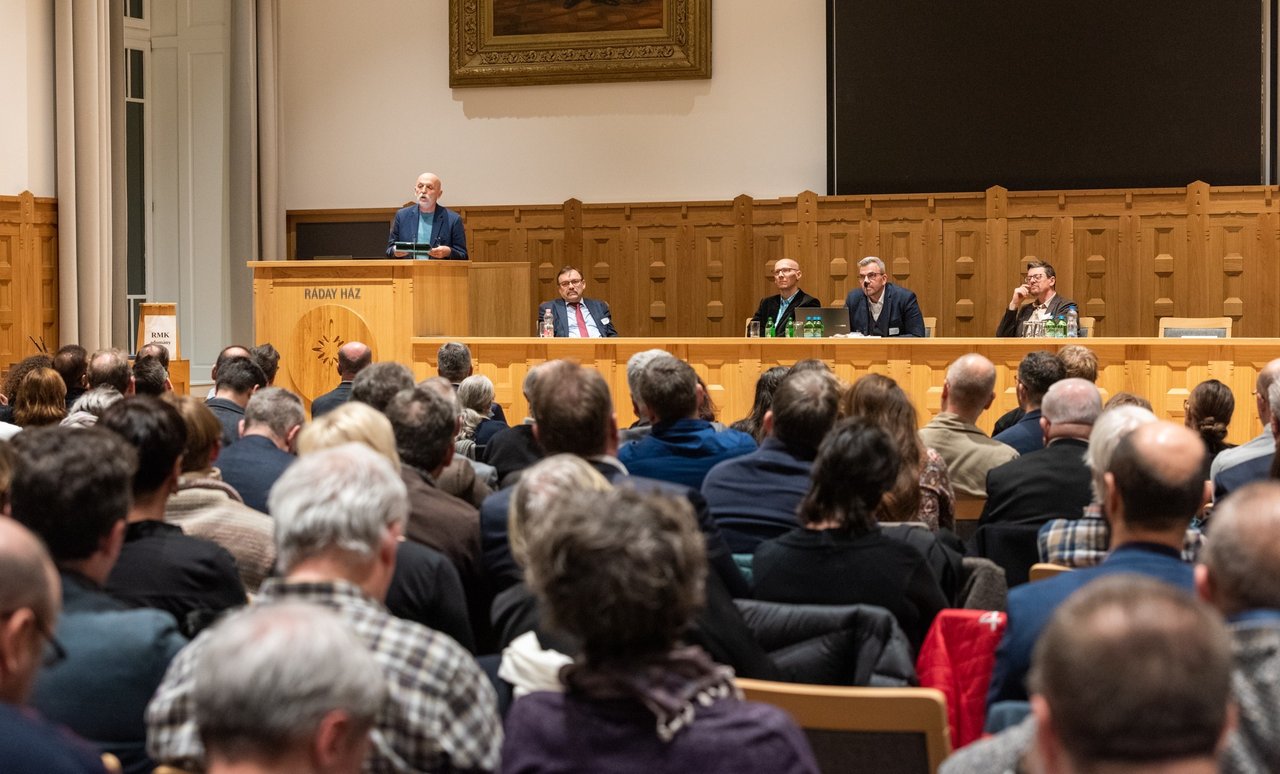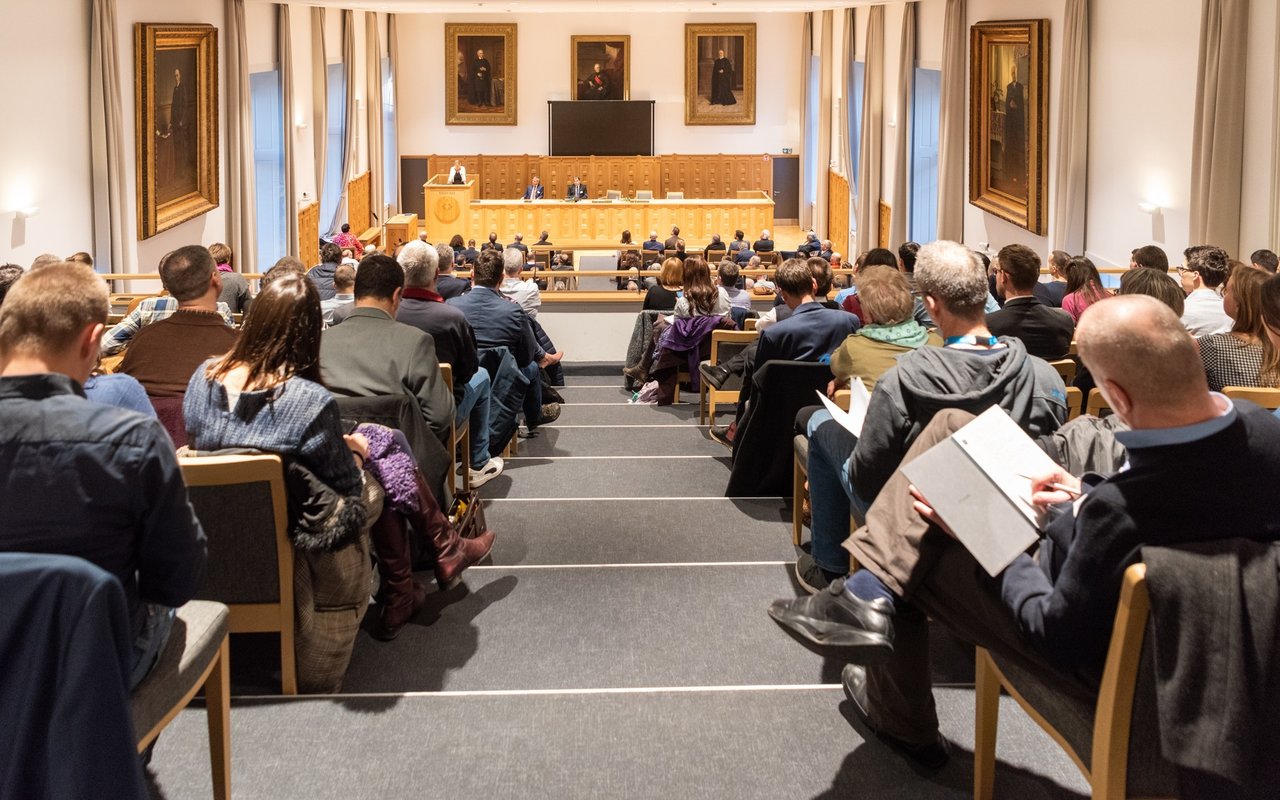A conference on the renewal of the Reformed Church in Hungary (RCH) was held on the 29 of January in Budapest. The organisers of the event aimed to create the opportunity for a theological reflection on the current challenges of the Reformed Church and the Hungarian society in the light of the Apostle Paul's exhortation to the Romans: "Do not conform yourselves to this world, but be transformed by the renewing of your minds, so that you may discern what is the will of God, what is good, what is pleasing and perfect for him." (Romans 12:2)

Photo: parokia.hu/Tamás Füle
The primary reason for the conference, which grew out as a grassroots initiative and on a voluntary basis but at the same time was closely followed both inside and outside the RCH, was the so-called "clemency case" at the beginning of 2024 and its consequences, which shocked the Reformed Church in Hungary (RCH) and the Hungarian society, which also led to the resignation of Bishop Zoltán Balog as Ministerial President of the Synod of the RCH. The three chief organisers of the conference were Rev. Tamás Kodácsy, senior pastor of the Dunakeszi Reformed Parish and associate professor at the Reformed Theological University of Sárospatak; Rev. László Thoma, senior pastor of the Budapest-Gazdagrét Reformed Parish and former professor at the Károli Gáspár Reformed University; and Rev. Ottó Pecsuk, associate professor at the Károli Gáspár Reformed University and secretary general of the Hungarian Bible Society.
The event was organised under the patronage of the Presidential Council of the Synod of the RCH, a joint body of the four bishops and lay presidents of the Church. However, it was announced in a statement a few days before the conference that none of them would be present at the event, to "not to influence in any way by their personal presence either the invited speakers or those who will be speaking from the floor.”
The program of the conference was diveded into four panels of longer contributions with shorter comments between the panels. The insights offered by some of the participants highlighted the current challenges of the RCH from several perspectives. Some of the speeches took a broader perspective on the situation of the Church and pointed out that our communication about the foundations of our faith and church needs renewal. Our basic expressions have become empty, and we ourselves are perhaps not even entirely clear about their meaning, so it is also challenging to make them understandable for the society around us (e.g. we might need to understand again the true meaning of the grace or the real depth and message of the traditional Hungarian Reformed greeting "Blessings and Peace".) Another set of contributions explored the questions of the church and its relationship to power and the public sphere, and how far the RCH has been able and willing to authentically proclaim the gospel entrusted to Christians in the midst of the events of the past year, or how well the public spaces within our church have functioned and are functioning, and how far there is room for an honest discussion about the internal affairs of the church. Several speakers raised questions about the institutional structures and decision-making mechanisms of the church, pointing out that they are sometimes detrimental to the calling of the church and do not sufficiently and equally support the functioning of the local congregations. Some speakers also spoke on leadership-related issues: the crisis of power and authority within the church, the distortion of leadership, and how and in what ways recovery and renewal are possible when we place our individual lives and our communities in the hands of God's redemptive work.

Photo: parokia.hu/Tamás Füle
At the same time, speakers drawing on Hungarian Reformed church historical experiences made it clear that the current situation of the RCH and the challenges it faces are not new. Throughout the long history of our Church, or even the last 150 years, there have been many periods that can serve as lessons for the present. Events of 2024 should not be examined separately but from a broader perspective, as the so-called “clemency case” and its consequences have merely highlighted the long-standing situation in the Church and raised many questions that have not been discussed for a long time, pointing to old wounds that have healed poorly. For renewal, it is therefore vital to see and understand the role of genuine and community-level repentance, what this can mean and how it can be achieved in our present situation since only an honest confrontation with ourselves can bring real healing. The situation in which our Reformed Church currently finds itself is the result of the Church's own decisions, not merely the combined effect of external factors. That is why we must learn to become again a Christ-centred community that is ready to kneel down only before its Lord and in which we are ready to love each other, even despite our differences and differing views.
The Reformed Renewal Conference covered a wide range of topics, exploring them from different approaches and perspectives and, in several cases, presenting sharply contrasting assessments. While the last session aimed to explore the possibilities for moving towards renewal, it became also clear that this conference was only the first step on a long journey. The organisers plan to continue the discussions in a second conference in October 2025.